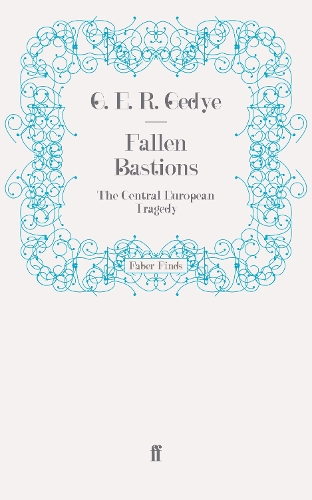
Fallen Bastions: The Central European Tragedy
(Paperback, Main)
Publishing Details
Fallen Bastions: The Central European Tragedy
By (Author) G. E. R. Gedye
Faber & Faber
Faber & Faber
18th June 2009
Main
United Kingdom
Classifications
Physical Properties
Paperback
522
Width 216mm, Height 135mm, Spine 37mm
646g
Description
Fallen Bastions was first published in 1939. In its seventieth anniversary year, Faber Finds is proud to reissue it. and more to the point, in the words of Hugh Greene, 'That Gedye was the greatest British foreign correspondent of the inter-war years can hardly be disputed'. correspondent for a number of newspapers from 1925 to 1939, he saw the evils of Nazism earlier than most. The book, in a vivid and compelling narrative, charts the inexorable descent to the Nazi invasion of Austria, the Anschluss, and finishes with the equally infamous piece of irredentism, the occupation of the Sudetenland in the Czechoslovak Republic. to the extent that the Daily Telegraph (not greatly in favour of appeasement, it must be admitted), sacked him. The editor announced he had resigned by 'mutual consent'. 'That', Gedye sardonically commented, 'is corrrect. It is equally correct that Herr Hitler invaded Czechoslovakia by ''mutual consent'' with President Hacha.' verve.
Author Bio
G. E. R. Gedye (1890-1970) was a journalist and one the most famous foreign corrrespondents of the twentieth-century. In the words of Hugh Greene, 'That Gedye was the greatest British foreign correspondent of the inter-war years can hardly be disputed. By his style and personality he contributed a great deal to the aura of romance which surrounded the profession at that period'. Gedye was most famously associated with Central Europe, being based in Vienna from 1925 to 1939. Before that he was in Cologne at the time of the Ruhr occupation by the French. In the Second World War he was in Prague before being employed on special military duties in the Middle East. After the war, he returned to Vienna. He retired in 1961.
